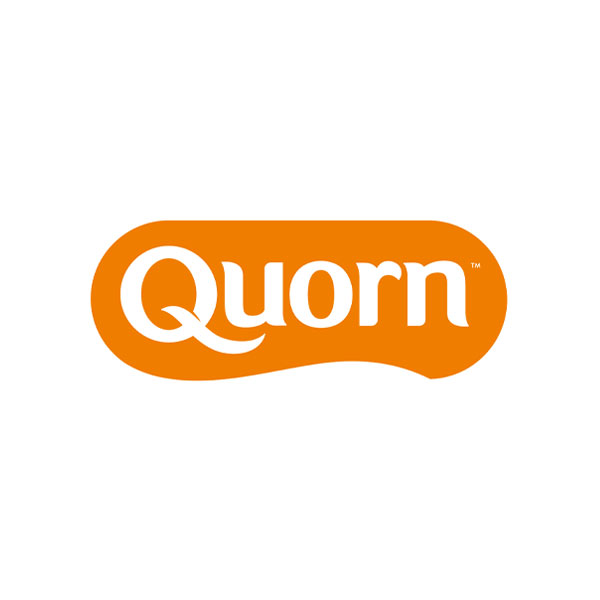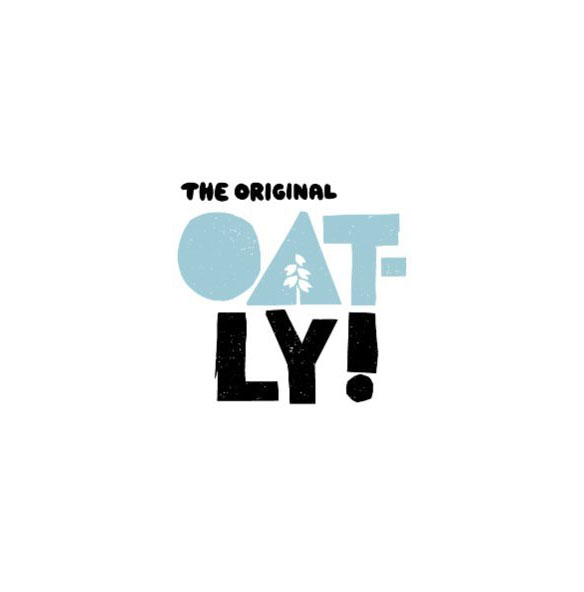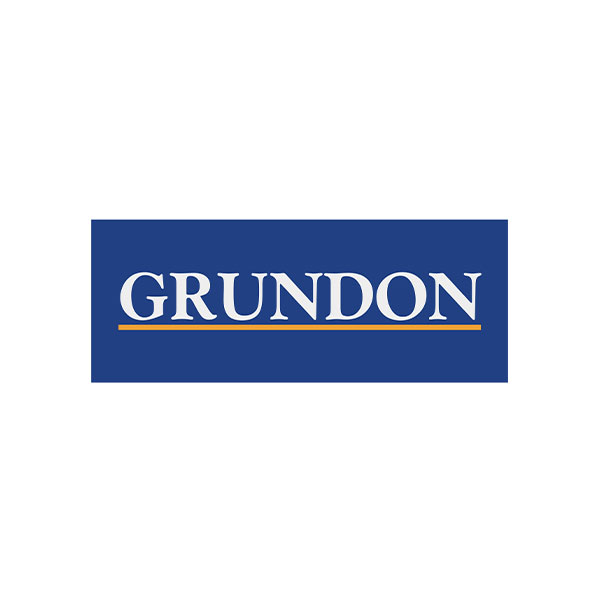Access all of Forest Green Rovers' club policies, you can also read our ticketing and online streaming services terms and conditions.
Privacy Policy
Forest Green Rovers complies with the Data Protection Act 2018. We collect, store and use personal data carefully, and ensure that it is kept secure.
We also may disclose such information in response to a law enforcement agency’s request or where we believe it is necessary to investigate, prevent, or take action regarding illegal activities, suspected fraud, situations involving potential threats to the physical safety of any person, non-compliance with of our Terms, or as otherwise permitted or required by law and consistent with legal requirements. You can read our Privacy Policy in full, below.
(PDF)Club behaviour policy
Forest Green Rovers Football Club aims to provide a safe and friendly environment for all visitors.
At times the behaviour of some visitors falls below what we would expect as reasonable and responsible members of society. On occasions this behaviour may breach the rules and regulations governed by the football authorities or legislation introduced by HM Government.
For the purposes of transparency, here's a list of sanctions taken from our Club Policy, outlining the action we would look to enforce in any circumstance outlined below:
Smoking (including the use of vape devices) inside the stadium (Breach of Ground Regulation 15): Written Warning To Be Of Good Behaviour for up to 12 months
Possession of a prohibited item on entry to the ground (Breach of Ground Regulation 7): Written Warning To Be Of Good Behaviour for up to 12 months
Unacceptable, threatening or abusive behaviour (Breach of Ground Regulation 9): Written Warning To Be Of Good Behaviour for up to 12 months
Entering on Unauthorised Ticket (ie adult using child ticket): Written Warning To Be Of Good Behaviour for up to 12 months
Posting defamatory, obscene, discriminatory, proprietary or libellous comments about the club, its staff or sponsors etc on the internet or social media: Written Warning To Be Of Good Behaviour for up to 12 months
Possession of a controlled drug or substance: Written Warning To Be Of Good Behaviour for up to 12 months
Being drunk entering or inside the stadium (Breach of Ground Regulation 17): Written Warning To Be Of Good Behaviour for up to 12 months
Possession of alcohol inside the stadium other than in FGR licensed areas (Breach of Ground Regulation 17): Written Warning To Be Of Good Behaviour for up to 12 months
Throwing any item at, onto or towards the playing area (Breach of Ground Regulation 11 ): Up to 1 year stadium ban (4 months remitted for good behaviour)
Possession of a smoke emitting device: Up to 1 year stadium ban (4 months remitted for good behaviour)
Going onto the Playing Area or an Area where spectators are not normally permitted (Breach of Ground Regulation 11 ): Up to 1 year stadium ban (4 months remitted for good behaviour)
Discharge of a smoke emitting device, or similar: Up to 3 year stadium ban (1 year remitted for good behaviour)
Offensive, threatening or abusive behaviour to FGR staff member (including stewards and bar staff): 5 year stadium ban (2 years remitted for good behaviour)
Violent, Racist or Homophobic abuse towards a FGR staff member (including stewards and bar staff): 5 year stadium ban (2 years remitted for good behaviour)
Useful links
For more information on football regulations see:
Football League Ground Regulations
Environmental policy
Reducing our impact on the environment sits at the core of everything we do at Forest Green Rovers.
We focus on the three biggest contributing sectors; Energy, Transport and Food - which between them account for the majority of everybody’s personal carbon footprint. These are the focus of our business activities, in terms of providing solutions and alternatives - they are also the focus of our communications, which is a key way in which we seek to bring change. You can read more about our impact on the environment in our Environmental Policy.
(PDF)Last reviewed 31 March 2020
Safeguarding policy
Forest Green Rovers Football Club is committed to safeguarding and promoting the welfare of children, young people and vulnerable adults that visit any area or department of the club and expects all staff and volunteers to share this commitment.
The club has systems in place to ensure that the welfare of vulnerable groups is dealt with appropriately and in a sensitive manner.
All staff at the football club that work or have contact with children, young people and vulnerable adults receive appropriate training and are DBS checked where appropriate.
(PDF)If you have any questions or concerns about the welfare of a child, young person or vulnerable adult, please contact:
For the Club & Academy: Liz Archibald, Designated Safeguarding Officer on safeguarding@fgr.co.uk
For the Community Trust: Chris Kelly, Head of FGR Community on Christopher.Kelly@fgr.co.uk
Returns, Refunds & Exchanges
Returns
FGR Club Shop are happy to refund within 30 days for any unsuitable items, provided they are in resalable condition. Please ensure you include your order slip found inside your original order.
To be eligible for a return or exchange, your item must be unused and in the same condition that you received it.
Non-returnable items:
Sale items Gift cards Downloadable software products Health and personal care items Personalised items
Refunds Once your return is received and inspected, we will send you an email to notify you that we have received your returned item.
If you are approved, your refund will be processed and returned to your original method of payment.
We will also notify you of the approval or rejection of your refund.
Please allow up to 14 days for your refund to be issued.
Exchanges We can replace items if they are faulty or damaged. If you need to exchange it for the same item, send us an email at clubshop@fgr.co.uk
Return Address Please send all returns/exchanges to:
Forest Green Rovers Limited
The New Lawn
Another Way
Nailsworth
GL6 0FG
United Kingdom
Articles of Association
Forest Green Rovers Football Club Limited
Proposed for adoption by special resolution October 2022
| Verdsion | Amendment |
| Adopted by special resolution 23 May 2011 | |
| Proposed for adoption by special resolution October 2022 | Definition 1.1.4 added Article 6.3 added Article 6.4 added |
The Companies Acts 1985 to 2006
Private company limited by shares
Articles of association of
Forest Green Rovers Football Club Limited
1. Interpretation
In these articles:
1.1.1 1985 Act means the Companies Act 1985;
1.1.2 2006 Act means the Companies Act 2006;
1.1.3 Chairman means the director appointed to the office of chairman of the board of directors of the Company in accordance with these articles;
1.1.4 EFL Regulations means the regulations published by the EFL, as amended from time to time and any rules made thereunder, and ‘Regulation’ shall refer to any one of them.
1.1.5 Football Association means the Football Association Limited being the governing body of Association Football in England;
1.1.6 Rules and Regulations means the rules and regulations of the Football Association as may be in force from time to time;
1.1.7 Table A means Table A in the Schedule to the Companies (Tables A to F) Regulations 1985, as amended at the date of incorporation of the Company and relating to a private company limited by shares.
1.2 A reference to any statute or provision of a statute includes any statutory modification or re-enactment of it for the time being in force.
2. The Football Association
2.1 The members and directors of the Company shall so exercise their rights, powers and duties and shall where appropriate use their best endeavours to ensure that others conduct themselves so that the business affairs of the Company are carried out in accordance with the Rules and Regulations of the Football Association for the time being in force.
2.2 No proposed alteration to the provisions set out herein shall be effective unless the proposed alteration has been approved in writing by the Football Association 14 days or more before the day on which the alteration is proposed to take place.
2.3 The office of a director shall be vacated if such person is subject to a decision of the Football Association that such person be suspended from holding office or from taking part in any football activity relating to the administration or management of a football club.
2.4 The Company shall not alter its constitution or make a material change to its financial structure without prior notification to the Football Association. For the purposes of this article, an alteration in constitution or material change in financial structure shall include the winding-up of the Company, incorporation of an un-incorporated club, an agreement by which all the assets and goodwill of the Company are sold or transferred, entry into compulsory or voluntary liquidation, the convening of a meeting of creditors or the appointment of a receiver, administrative receiver, manager or administrator or if the Company ceases for any reason to carry on business or becomes a holding company or subsidiary company within the meaning of the 2006 Act.
3. Table A
3.1 The regulations contained in Table A apply to the Company except insofar as they are excluded by, or are inconsistent with, these articles.
3.2 Regulations 24, 64, 76 to 79 inclusive, 94 to 97 inclusive and 118 of Table A do not apply to the Company.
4. Share capital
In accordance with section 569 of the 2006 Act, the directors be generally empowered to allot equity securities (as defined by section 560 of the 2006 Act) as if section 561 of the 2006 Act did not apply to any such allotment.
5. Lien
The lien conferred by regulation 8 of Table A will attach to fully paid as well as to partly paid shares, and to all shares registered in the name (whether as sole or joint holder) of any person indebted or under liability to the Company, for the amount of his debt or liability. The registration of a transfer of a share will operate as a waiver of any lien of the Company on that share.
6. Transfer of shares
6.1 The directors may, in their absolute discretion, refuse to register the transfer of any share, whether or not it is a fully paid share.
6.2 If the directors refuse to register the transfer of any share, they must give the transferee notice of refusal, together with the reasons for the refusal, in accordance with section 771(1) of the 2006 Act.
6.3 Without prejudice to the provisions of article 6.1, the directors may refuse to register the transfer of any share(s) in the event that:
6.3.1 the Football League Ltd (company number 00080612) has not provided the transferee with all necessary confirmations and approvals as required by the Owners’ and Directors’ Test contained at Appendix 3 of the EFL Regulations (as updated from time to time) or any equivalent provision of the EFL Regulations as updated from time to time; or
6.3.2 registering the transfer of any share(s) would cause the Company to breach any Regulation, Football Association Rule, Premier League rule or any other equivalent provision of any regulatory authority to which the Company is subject.
6.4 Except as required by law, no person is to be recognised by the Company as holding any share upon any trust, and except as otherwise required by law or the articles, the Company is not in any way to be bound by or recognise any interest in a share other than the holder’s absolute ownership of it and all the rights attaching to it.
7. Proceedings at general meetings
In regulation 40 of Table A, between the words "two persons" and "entitled to vote", there are to be inserted the words "holding together over 50% of the issued ordinary shares in the capital of the Company".
8. Number of directors
8.1 Unless and until otherwise determined by ordinary resolution, the number of directors:
8.1.1 is to be not less than two; and
8.1.2 is not subject to any maximum.
9. Appointment, removal and retirement of directors and Chairman
9.1 The Company may by ordinary resolution appoint a person as a director who is willing to act as a director either to fill a vacancy or as an additional director.
9.2 The Company may by ordinary resolution appoint any director as Chairman whilst he remains a director of the Company appointed to that office, who is willing to act as Chairman, any such appointment (or renewal of such appointment) to be for a period of 24 months from the date of the ordinary resolution (the “Appointment Period”). If the Company appoints a Chairman in accordance with this Article 9.2, it may not remove the Chairman (either as Chairman or as a director) during the Appointment Period.
9.3 The Chairman may, in addition to any appointments under this Article 9, appoint any person as a director and may remove any director at any time and on immediate notice.
9.4 Any appointment or removal of a director under Article 9.3 shall be made in writing and signed by the Chairman.
9.5 No director shall be required to retire or be ineligible for re-appointment as a director or Chairman, nor shall any person be ineligible for appointment as a director or Chairman by reason only of his having attained a particular age.
9.6 No director shall be required to retire by rotation.
9.7 No special notice is required of any resolution appointing or approving the appointment of or removing a director under Article 9.3 nor is any notice required to state the age of the person to whom the resolution relates.
10. Disqualification of directors
Regulation 81 of Table A is to be read and construed as if the office of a director is vacated if he is removed from office in accordance with these articles.
11. Proceedings of directors
11.1 Directors participating in a meeting of directors or of a committee of directors:
11.1.1 must participate at the same time, but may be in different places; and
11.1.2 may communicate with each other by any means.
11.2 Participation in a meeting in the manner referred to in article 11.1 will be deemed to constitute presence in person at the meeting. The meeting will be deemed to be held at the place where the Chairman of the meeting is.
11.3 Subject to article 11.5, a director shall be required to vacate his/her position in the event that (s)he does not participate in 3 consecutive meetings of directors in accordance with article 11.1.
11.4 A record of attendance at both directors and members' meetings shall be taken and that record shall be included in the AGM pack circulated to members prior to each annual general meeting. A director who vacates his/her position pursuant to article 11.3 may (subject to these Articles) stand for re-election at the annual general meeting following his/her vacation of office.
11.5 A director who would otherwise have to vacate his/her office pursuant to article 11.3 may make a written submission to the board of directors explaining the reason for their non-participation and any exceptional circumstances and the board may or may not accept such submissions based on a majority vote. For the avoidance of doubt a director shall not be required to vacate office if the reason for missing 3 consecutive Board meetings was as a result of bereavement or family emergency.
11.6 The quorum for the transaction of the business of the directors shall be a majority of the board of directors one of whom shall be the Chairman.
11.7 The Chairman (or his duly authorised designee), whilst he remains a director and Chairman, shall chair every meeting of the directors. If the Chairman resigns as Chairman and/or as a director or otherwise ceases to be Chairman or there is no director holding that office for any other reason, then the remaining directors shall convene a board meeting as soon as reasonably practicable for the purpose of appointing an individual acceptable to the majority of the remaining directors as the new Chairman. The directors present at that meeting may appoint one of their number to be Chairman of that meeting, and the individual appointed as Chairman at that meeting shall chair every subsequent meeting of the directors until such time as an ordinary resolution is passed by the Company appointing a new Chairman in accordance with Article 9.2, at which point the prior Chairman shall automatically resign.
12. Voting where conflict of interest
12.1 Subject to such disclosure as is required by the relevant provisions of the 1985 Act or the 2006 Act for the time being in force and (where applicable) to article 12.2, a director is entitled to vote at a meeting of directors, or of a committee of directors, on any resolution concerning a matter in which he has, directly or indirectly, an interest or duty which is material and which conflicts or may conflict with the interests of the Company. He will also be counted in the quorum at any meeting at which the matter is considered.
12.2 Article 12.1 has no effect in relation to a director who has a conflict of interest that arises (otherwise than in relation to a transaction or arrangement with the Company) on or after the coming into force of section 175 of the 2006 Act.
13. Secretary
13.1 In accordance with section 270(1) of the 2006 Act, the Company is not required to have a secretary.
13.2 The directors may appoint a secretary if they so determine.
13.3 The directors are to decide the terms of appointment of any secretary.
13.4 The directors may remove any secretary appointed by them.
14. The seal
Regulation 101 of Table A will only apply if the Company has a common seal. Whether it does or not, a share certificate may be executed under section 44(4) of the 2006 Act instead of being sealed. Regulation 6 of Table A is modified accordingly.
15. Communications by means of a website
The Company may send or supply documents or information to members by making them available on a website.
16. Notices
16.1 In regulation 112 of Table A, the words "first class" are to be inserted before the words "post in a prepaid envelope".
16.2 Any notice to a member will be deemed to be given:
16.2.1 if sent by first class post, the day after the day it was put in the post;
16.2.2 if delivered by hand or left at a registered address, the day on which it was so delivered or left;
16.2.3 if contained in an electronic communication, at the expiration of 24 hours after the time it was sent (and for this purpose section 1147(5) of the 2006 Act is excluded);
16.2.4 if sent or supplied by means of a website, in accordance with section 1147(4) of the 2006 Act.
16.3 The third sentence of regulation 115 of Table A does not apply to the Company.
17. Qualifying third party indemnity provision
17.1 Subject to the following provisions of this article 17, a relevant director may be indemnified out of the Company’s assets against any liability incurred by him to a person other than the Company, or an associated company of the Company, in connection with any negligence, default, breach of duty or breach of trust in relation to the Company.
17.2 A relevant director may not be indemnified against:
17.2.1 any fine imposed in criminal proceedings;
17.2.2 any sum payable to a regulatory authority by way of a penalty in respect of non-compliance with any requirement of a regulatory nature (however arising);
17.2.3 any liability incurred in defending criminal proceedings in which he is convicted, and the conviction is final;
17.2.4 any liability incurred in defending any civil proceedings brought by the Company, or an associated company, in which a final judgment is given against him;
17.2.5 any liability incurred in connection with an application for relief in which the court refuses to grant him relief, and the refusal is final; or
17.2.6 any other liability, if an indemnity against it would fail to meet the requirements for the time being of qualifying third party indemnity provision (within the meaning of the 2006 Act for these purposes).
17.3 The reference to an application for relief is to any application for relief from liability for negligence, default, breach of duty or breach of trust in relation to the affairs of the Company.
17.4 A conviction, judgment or refusal of relief becomes final if the period for bringing an appeal or any further appeal has ended and any appeal brought is determined, abandoned or otherwise ceases to have effect.
17.5 For the purposes of this article:
17.5.1 companies are associated if one is a subsidiary of the other or both are subsidiaries of the same body corporate; and
17.5.2 a relevant director means any director or former director of the Company.
17.6 This article is without prejudice to any other lawful indemnity to which a relevant director may for the time being be entitled.
18. Liability insurance
18.1 The directors may decide to purchase and maintain insurance, at the expense of the Company, for the benefit of any relevant officer in respect of any relevant loss.
18.2 In this article:
18.2.1 a relevant officer means any director or former director of the Company, and any other officer or employee or former officer or employee of the Company (but not its auditors); and
18.2.2 a relevant loss means any loss or liability which has been or may be incurred by a relevant officer in connection with that relevant officer’s duties or powers in relation to the Company or any associated company (within the meaning of article 17.5.1) of the Company.
19. Winding up
19.1 On the winding-up of the Company the surplus assets shall be applied, first, in repaying the members the amount paid on their shares respectively. If such assets are insufficient to repay the said amount in full, they shall be applied rateably, so that the loss shall fall upon the members in proportion to the amount called up on their shares respectively. No member shall be entitled to have any call upon other members for the purpose of adjusting the members’ rights, but where any call has been made and has been paid by some of the members such call shall be enforced against the remaining members for the purpose of adjusting the rights of the members between themselves.
19.2 If the surplus assets shall be more than sufficient to pay the members the whole amount paid upon their shares, the balance shall be given by the members of the Company, at or before the time of dissolution as they shall direct, to The Football Association Benevolent Fund, or to some club or institute in the United Kingdom having objects similar to those set out in the Memorandum of Association or to any local charity, or charitable or benevolent institution within the United Kingdom.
19.3 In default of any such decision or apportionment by members of the Company, the same to be decided upon and apportioned by a judge of the High Court of Justice having jurisdiction in such winding-up or dissolution and as he shall determine.
19.4 Alternatively such balance may be disposed of in such other manner as the members of the Company with the consent of the Council of the Football Association, as existing from time to time, shall determine.
Modern slavery and human trafficking statement
Green Britain Group Limited, owner of the Ecotricity group of companies, is a leading British green energy company and the first green energy company in the world.
Green Britain Group’s purpose in life is the environment and to promote sustainable living in all its forms. We do not just ‘try’ to reduce our impact, it is what we do – it is in our DNA.
We power more than 100,000 customers across Britain from our growing fleet of wind and sun parks. Green Britain Group Limited is also investing in green gas mills and energy storage facilities.
We are a not-for-dividend company – so our profits go into our mission to change the way energy is made and used in Britain. This unique business model helps turn ‘bills into mills’.
Our mission is to create a greener Britain – working across the three frontiers of energy, transport and food.
Company Structure
Our work extends beyond the boundaries of a traditional energy company. Our structure includes numerous Green Britain Group Limited subsidiaries, including amongst others: Ecotricity Group Limited, Devil’s Kitchen Ltd, our venture taking super healthy vegan food to schools; Britwind Ltd, our small wind company; and The Sky Mining Company Ltd, one of the world’s first producers of sustainable diamonds made entirely from the sky. Also, part of our group is the world’s leading sustainable and vegan football club, Forest Green Rovers.
Supply Chains
We are committed to acting ethically and with integrity in all of our business relationships and to implementing and enforcing effective systems and controls to ensure slavery and human trafficking is not taking place anywhere in our supply chains.
We are an expanding business and so we acknowledge that as our areas of activity increase, we need to pay close attention to the risk of slavery and human trafficking with suppliers.
We are careful about who we work with and who our partners are, too. We do not work with any organisations directly involved in anything we consider to be unethical, immoral or just plain wrong. Organisations are subject to rigorous assessment and approval before we work with them.
Our contractors and suppliers are reviewed on a regular basis. Our reviews include researching country of origin, their sector of activity, and the length of the business relationship – in order to assess the areas of highest risk for us.
We make sure all suppliers follow our ethical and environmental ethos.
Due Diligence, Existing Polices and Risk Assessments
Our ethos is to reduce the environmental and social impact of our own activities by encouraging and pursuing behavioural change from both inside and outside the company. As a result, we attract employees who share our values and strive to achieve our ethos in their working lives, whilst making sure that the organisations we interact with share our values too.
Slavery and servitude do not take place in any of the Green Britain Group businesses and we have policies in place to ensure they never will. We have in place procedures to:
Identify and assess potential risk areas in our supply chains
Mitigate the risk of slavery and human trafficking occurring in our supply chains
Monitor potential risk areas in our supply chains
Protect whistle blowers
Promote equality
These policies and procedures promote the health and wellbeing of all our employees and help us to investigate any employee concerns safely, promptly and confidentially.
We are committed to continually reviewing all of our employee-related policies to ensure that they are compliant with modern slavery guidelines.
Measuring Effectiveness
Once we have conducted our latest review, the results are used to create internal policies and procedures that specifically help to combat and reduce the risk of modern slavery and human trafficking in our business and supply chains.
Training for Staff
To ensure a high level of understanding of the risks of modern slavery and human trafficking in our supply chains and our business, we provide training to our staff.
All new employees have access to our ‘Modern Slavery Awareness and Victim Identification Guidance’ training documents, which includes the companies’ ethos and interacting with trusted organisations.
Additionally, our dedicated ‘People Team’ are trained to deal with any employee concerns safely, promptly and confidentially.
Subsidiaries of Green Britain Group Limited
The Green Britain Group contains many smaller companies that do not fall within the remit of the Modern Slavery Act requirements, but we ensure that each and every one of them is still subject to the same policies and procedures. In this way, we’re endeavouring to ensure that modern slavery and human trafficking does not take place in any of our supply chains or businesses.
Continuing Review
Overall, the steps we’re currently taking, and our continuing review and improvement of supply chain management, will help us to ensure that slavery never has a place in the Green Britain Group.
This statement is made pursuant to section 54(1) of the Modern Slavery Act 2015 and constitutes our slavery and human trafficking statement for the financial year 2021-2022.
This statement has been approved by the Board of Directors.

















